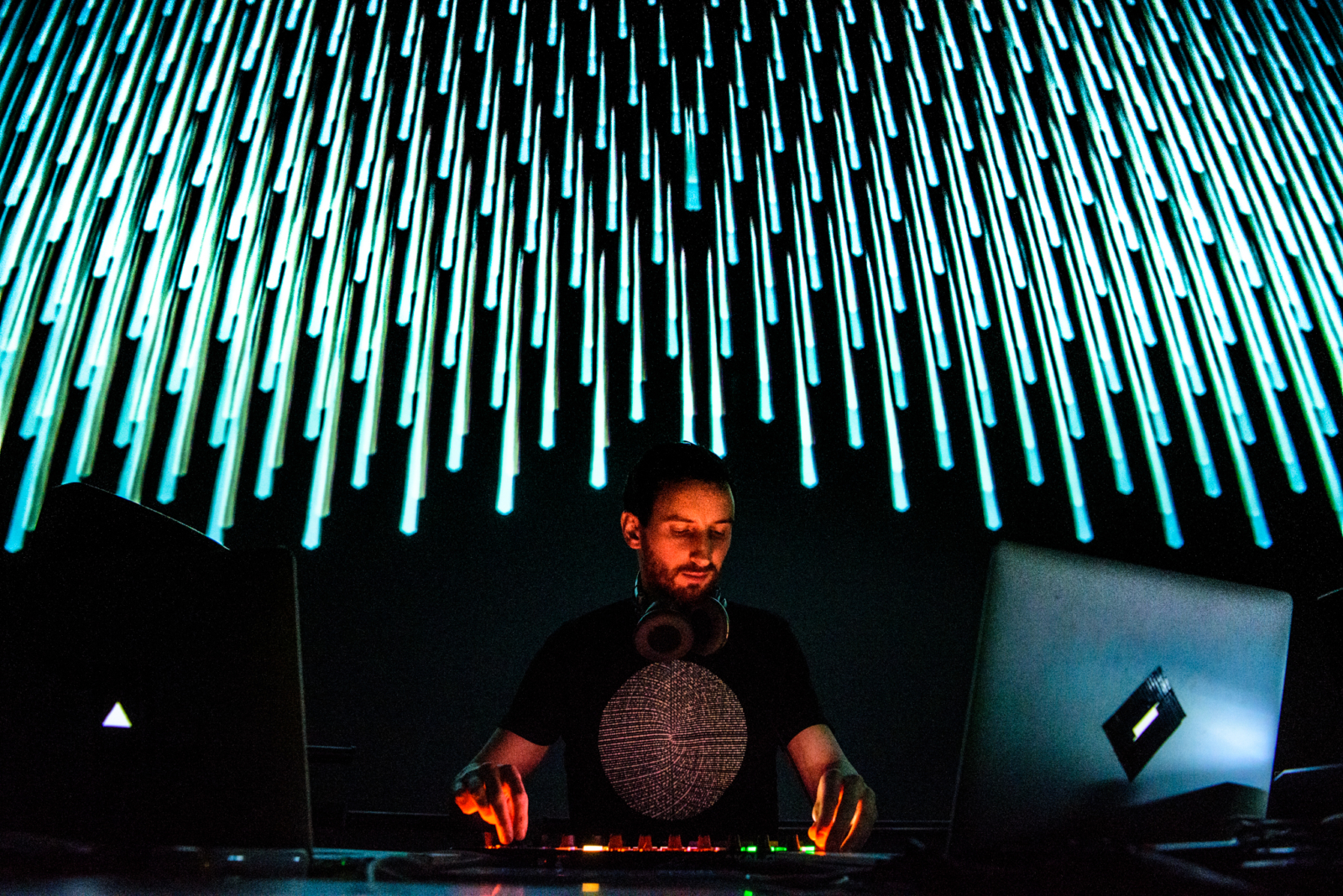Scientific Sound

This London-based techno and electronica producer spins the decks at heady gigs that represent the ever-changing patterns of the universe. He’s an experimentalist who, via studying the laws of nature, embodies them in the structure of his music. Holding a PhD in computational biology, he brings this to the fore in creating his stunning techno – he is the critically acclaimed Max Cooper. What’s On talks with him to find out how the artist finds parallels between music and science, about working with a 3D sound system and how he embodies fantastic ideas in his performances.
When did you first become familiar with electronic music?
It would have been via my sister in the 80’s. She listened to a lot of the classic synth pop stuff, which I still love, and which seeded my obsession with big synth chords and big snares.
What parallels do you find between biology/genetics and the creation of electronic music, if any?
Both science and music are all about patterns and structures, one in nature, the other in sound, so I think a love of form in general seeds both. There’s also a lot of similarities in my work process, whereby I’m sitting in front of my screen creating software mechanisms for playing with abstract systems, and applying the scientifically central idea of reductionism to both – where I’m trying to drill down to smaller and smaller units and work on and understand those minutiae.
Your last track – Stacked Moments – speaks for itself. But how can you introduce it to our readers?
I was wondering whether our experience of things moving in time could be the result of motion process, whereby time is just a physical dimension into which everything grows. So I created some musical ideas and started a visual collaboration with Kevin McGloughlin (who made the Waves and Symmetry videos from Emergence). Stacked Moments is referring to this idea of physical time, whereby every new moment is stacked on the last as part of this growing structure of time.
Who influenced you as a musician?
Rob Clouth is pretty inspiring, both in terms of his musical originality and new approaches technically, and his wider ideas. Rival Consoles too, he’s absolutely the best out there in terms of his synth work.
You have worked with 4DSOUND, which was developed in Amsterdam. Tell us in a few words about this atmospheric technology and about the experience. Is this system a synesthesia catalyst?
It’s a 3-dimensional grid of speakers throughout a space you can explore. So the sounds can seem to come from anywhere, and not only that, you can walk through and past sounds – so yes, it’s a little like synesthesia in that sound takes on a physical structure of its own.
Have you had any sort of psychedelic experience? Your video accompaniment is simply mind-blowing.
Experience is my central interest, this is the only thing that we really know exists. I’m just delving into what is already there in nature, albeit ideas which aren’t usually visible. If there’s a psychedelic link then that’s probably because psychedelic experience is grounded in mathematical and natural processes – people seeing the mechanisms of their visual processing close up!
Have you ever thought about teaching? I mean science.
No, there are too many ideas I want to explore, and not enough time.
In your conversation with Lauren Martin you noted the artificial mind or the hard problem of consciousness is one of your favorite topics. So, when will AI write music or do other art that’s more sophisticated than a human?
I don’t think it’s going to take over the world just yet, but it’s certainly a great tool for helping us doing our jobs more efficiently, and as an extension of our own minds, much as the computer already is – I’m not a musician in any sense, I just feel music when I hear it, and the computer has allowed me to create music just with that single tool. So software already facilitates my music to a large degree, and I’m hoping new learning algorithm (AI) techniques can further that process – there definitely will be some interesting new music coming from that area.
In one of your interviews, you said when you find something you like, you endlessly listen to it. This was in 2012. What are you obsessed with now?
Probably it would be Winged Victory for the Sullen’s Atmos LP, Lusine’s Sensorimotor LP, and Ben Lukas Boysen’s Gravity LP of the last couple of years. Some albums just keep me coming back again and again.
The contents of your Emergence album features in the Digital Age/Future section a track called Trust inspired by altruism. Is this a hope or a principle?
That track is called Trust, the principle behind it being altruism. We can argue about whether true altruism really exists in humans, but either way, it did emerge in biology somewhere along the line, and it’s a little in short supply these days with the lurch towards nationalism etc. So I thought it would be a nice idea to pay some attention to.
Max Cooper
Emergence (Techno, ambient music)
8 December at 21.00
National Oleksandr Dovzhenko Film Centre (Vasylkivska 1)
Tickets: 300-350 UAH
















